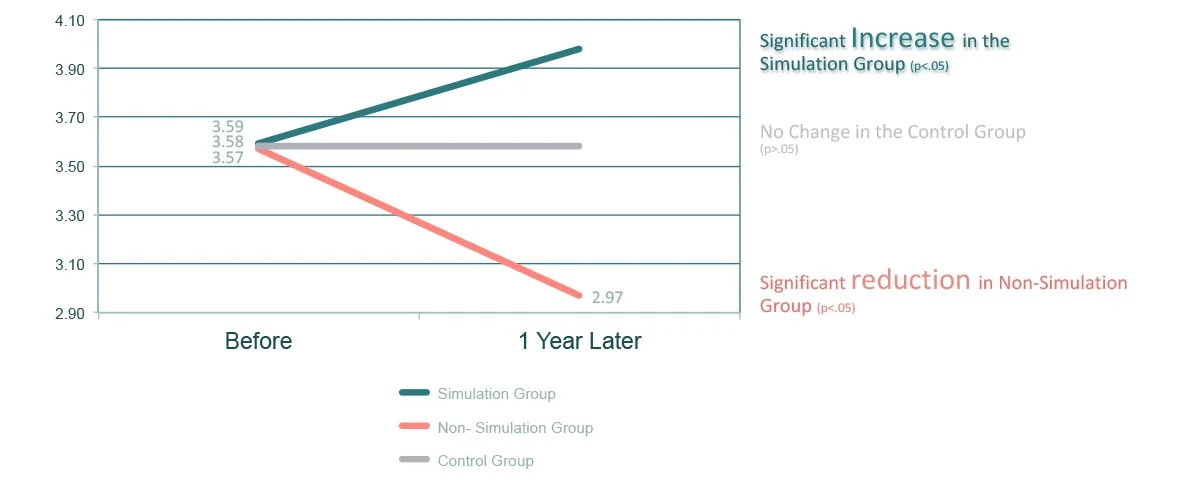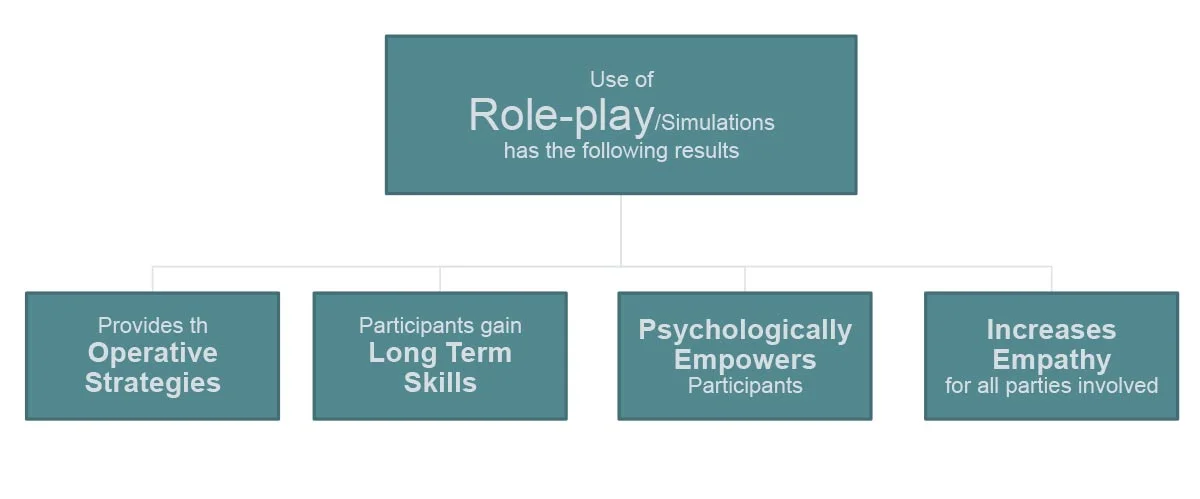“Compathy
1. feelings, such as happiness or grief, shared with another or others
2. physical empahty”
Research Findings
The following findings have been derived (using mixed methods) from 73 simulations and 238 questionnaires with three research groups comprising 90 participants. For statistical integrity participants split into three groups: A Simulation Group, A non-Simulation Group and a Control Group.
2016,Yifat Davidoff, Team Based Simulations among Teacher Trainees: Dealing with Ethical Dilemmas in Cases of Bullying at School, Bar Ilan University
Effects of Simulation
“The psychologically empowered state was considered to be a cognitive state characterized by a sense of perceived control, perceptions of competence, and internalization of the goals and objectives of the organization.
”
The primary finding of the research is that Simulation (Role-Play) enhances the psychological empowerment of participants and that this manifests in:
Increased self-confidence to achieve goals
A heightened sense of control of the environment
Increased ability to cope effectively with ethical dilemmas
Findings in numbers
Psychological Empowerment
Statistical analysis (using mixed methods) of the data shows a significant increase in the Psychological Empowerment of Simulation Groups after one year. The non-Simulation Groups (only filled out questionnaires before and after discussion of the issues) showed a significant reduction in psychological empowerment.
Impact of Simulations
The Control Group in the research did not do simulations, but only had discussions on scenarios. The findings show that group discussions did help.
The significance of ethical dilemmas in communications
The importance of team work
The importance of management support
The importance of avoiding aggression and punishmen
The Simulation Group role-played scenarios (having also had discussions prior to the simulations). This group emerged with a significantly expanded spectrum of understanding, including:
Empathy
Awareness of how the discussion environment plays a role
Importance of the timing of a discussion
Boundaries and egalitarian discourse
The value of exposing weaknesses to team mates
The holistic impact of family life
Find creative ways to maximise the strengths and weaknesses of colleagues
Research Conclusions
The use of Role-play in groups provides participants with "real life" operational strategies, derived from a sense of having had real experience. Furthermore, this 'fabricated experience' has been proven to stay in the long-term memories of participants. Increased psychological empowerment and heightened empathy were observed.





